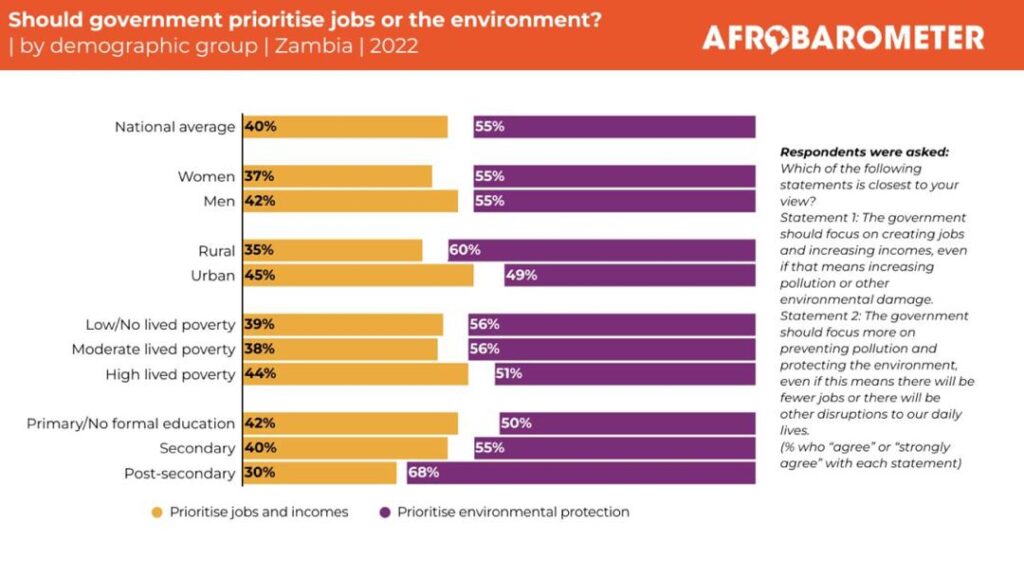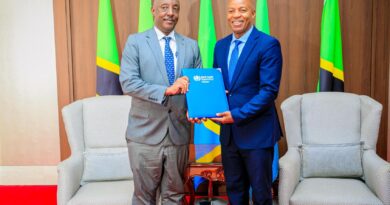Zambia’s Economic Development and Environmental Concerns: Insights from Afrobarometer Survey
Zambia’s economic prosperity and environmental well-being are completely linked, with key sectors such as mining, tourism, agriculture, and forestry playing a vital role in the country’s Gross Domestic Product (GDP) and export value. Copper, in particular, stands as the backbone of Zambia’s economy, contributing to more than 80% of export earnings. Additionally, the mining of cobalt, gold, nickel, lead, silver, uranium, zinc, and various precious and semi-precious stones also supports the nation’s economic growth. Moreover, Zambia’s natural assets, including waterfalls, lakes, rivers, and diverse wildlife species, play a crucial role in job creation and generating foreign exchange revenues.
Balancing economic development with environmental protection is crucial for Zambia’s sustainable future. The nation faces challenges due to the impact of industries, urbanization, and climate change, leading to soil, air, and water pollution, which affects both human health and wildlife. Additionally, rapid deforestation and loss of wetlands, severe drought, inadequate sanitation, and waste disposal challenges in cities further exacerbate the environmental concerns faced by the country.
To gain insights into Zambians’ experiences and perceptions of pollution, environmental governance, and natural resource extraction, a special survey module was included in the Afrobarometer Round 9 questionnaire.
Survey findings reveal that more than half of Zambians view pollution as a serious problem within their communities. The top local environmental issues cited by citizens include trash disposal, deforestation, and water source pollution. While individuals consider themselves primarily responsible for limiting pollution and keeping their communities clean, they also express a strong desire for more action from the government to protect the environment, even if it comes with a significant economic cost.
Zambians exhibit mixed views on the benefits and environmental costs associated with natural resource extraction. Many citizens express a desire for the government to tighten regulations on the industry to mitigate its negative impacts on the environment.
The survey’s results highlight the importance of environmental consciousness and the need for collaborative efforts between citizens and the government to safeguard Zambia’s natural resources and protect the environment. As the nation continues to pursue economic growth, addressing environmental challenges will be critical to ensuring a sustainable and prosperous future for all Zambians.
The Afrobarometer survey provides valuable insights for policymakers, stakeholders, and environmental advocates to develop strategies that promote sustainable development, protect the environment, and enhance the overall well-being of the country and its citizens.



